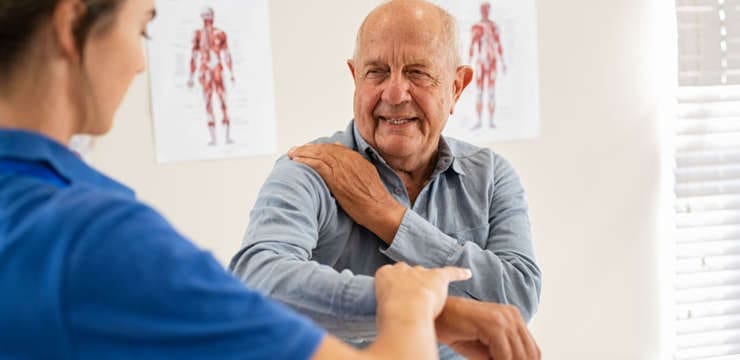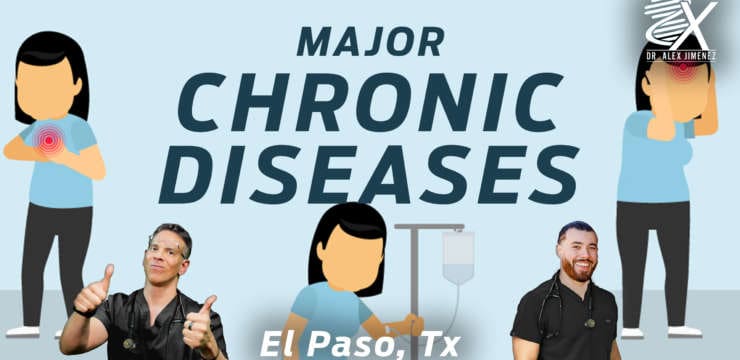
Traumatic brain injury can change lives. Learn about its effects and the best practices for rehabilitation and support.
Table of Contents
Introduction
Globally, traumatic brain injury (TBI) is a major cause of mortality and disability. An external force striking the head can cause this disorder, which may have both short- and long-term effects on the brain, neurological system, musculoskeletal system, and other important organs. Because TBI is becoming increasingly complex and common, it is critical for medical professionals, such as chiropractors and nurse practitioners, to understand its causes, symptoms, and the benefits of an integrated, holistic approach to treatment.
What Is a Traumatic Brain Injury?
A traumatic brain injury is any damage to the brain that is not caused by a disease or birth defect and is caused by an outside force. This force can change a person’s strength, intelligence, or awareness for a short or long time. TBIs can be mild, like concussions, or severe, which can cause permanent damage or even death (Mayo Clinic, 2021).
Causes of Traumatic Brain Injury
TBI commonly arises from situations where rapid movement, violent jolt, or direct blow to the head or body affects brain tissue. Typical causes include:
-
Falls: These are the most frequent cause, particularly in young children and older adults.
-
Motor vehicle accidents: Collisions involving cars, bikes, motorcycles, or pedestrians.
-
Violence: Assaults, gunshots, domestic violence, or shaken baby syndrome.
-
Sports injuries: Activities like football, soccer, hockey, boxing, and skating.
-
Military service: Blast injuries from explosions.
-
Other incidents: Workplace accidents, recreational injuries, and accidents involving sharp or blunt objects.
The degree of damage depends on various factors, including the nature and intensity of the force involved (Mayo Clinic, 2021).
Symptoms of Traumatic Brain Injury
Symptoms vary based on the injury’s severity and can be physical, sensory, cognitive, emotional, or behavioral. They may develop immediately after injury or take hours, days, or weeks to emerge.
Mild TBI (Concussion) Symptoms
-
Physical: Headache, nausea, vomiting, fatigue, dizziness, or problems with speech.
-
Sensory: Blurred vision, sensitivity to light/noise, ringing in the ears, change in smell or taste.
-
Cognitive/mental: Short-term memory issues, slow thinking, confusion, difficulty concentrating, feeling dazed.
-
Sleep: Difficulty falling asleep, insomnia, or excessive sleep.
-
Behavioral/emotional: Mood swings, depression, irritability, anxiety.
Moderate to Severe TBI Symptoms
-
Physical: Persistent or worsening headache, seizures, repeated vomiting, loss or fluctuation of consciousness, clear fluid from nose/ears, weakness or numbness, loss of coordination.
-
Cognitive/mental: Profound confusion, slurred speech, agitation, combativeness, difficulty awakening from sleep, coma.
-
Other signs: Dilated pupils, visual disturbances, facial muscle paralysis, difficulty swallowing, hearing loss.
Additional Clinical Signs Uncovered by History and Questioning
Chiropractors and nurse practitioners often identify subtle symptoms through detailed patient history and clinical questioning:
-
Visual problems
-
Balance and coordination issues
-
Nausea and digestive complaints
-
Sensitivity to light/sound
-
Cognitive difficulties: Slower reading, slow information processing, and confusion.
-
Emotional changes: Anxiety, depression, irritability.
-
Insomnia and disrupted sleep patterns
-
Fatigue
Uncovering these issues often requires looking beyond obvious trauma to examine recent changes in daily functioning, attention, sleep, or relationships (Mayo Clinic, 2021; Cleveland Clinic, 2024).
How TBI Affects the Body: Musculoskeletal, Neurological, and Vital Organ Systems
Neurological Effects:
TBI primarily disrupts the nervous system by:
-
It can damage brain tissue, nerves, and blood vessels.
-
Causing either focal (localized) or diffuse (widespread) injuries.
-
Leading to neurochemical imbalances and chronic inflammation, which can impair function for months or years (Jassam et al., 2017; Risbrough et al., 2022).
Musculoskeletal Effects:
The impacts of TBI often reverberate through the:
-
Neck and spinal musculature: Whiplash and associated neck pain or instability can occur with head trauma.
-
Muscular coordination: Damage to brain areas governing movement can result in poor motor control, spasticity, or joint instability.
-
Posture and balance: Vestibular and proprioceptive dysfunction manifest as dizziness, frequent falls, and abnormal gait.
Vital Organ Effects:
TBI can also have indirect effects on organs such as the heart, lungs, and gastrointestinal system through:
-
Disrupted autonomic regulation (e.g., changes in heartbeat, breathing).
-
Increased risk for hormonal and metabolic imbalances.
-
Sleep disruption and chronic stress effects impact overall health (Kaur & Sharma, 2018).
Feeling Better Than Ever After a Semi-Truck Accident- Video
Clinical Assessment: Chiropractors and Nurse Practitioners
A thorough evaluation by a chiropractor or nurse practitioner involves:
-
Detailed history: Questioning about recent head injuries, accidents, sports participation, or falls.
-
Symptom inventory: Assessing for memory gaps, sleep changes, mood, sensitivity to the environment, and unexplained pain.
-
Functional neurological examination: Testing muscle strength, reflexes, sensation, eye movements, and balance.
-
Assessment tools: Glasgow Coma Scale (for acute assessment), postural and balance testing, visual tracking, cranial nerve exams, and cognitive screening tools.
Early recognition of subtle changes is key to appropriate management and referral for further diagnostics or specialty care (Galgano et al., 2017).
A Hidden-Symptom Checklist Example You Can Bring To Your Visit

Integrative Approaches to TBI: The Role of Chiropractic and Nurse Practitioner Care
The special advantages of the fields of chiropractic and nurse practice are combined in an integrated approach. Through cooperative management, this integrated care approach tackles the nonphysical as well as physical effects of TBI.
Chiropractic Care:
-
Spinal adjustments: Restore movement and function to the spine, reduce nervous system irritation, and potentially relieve headaches, neck pain, or musculoskeletal symptoms.
-
Soft-tissue therapies —massage, myofascial release, and stretching — help reduce muscle tension and improve circulation.
-
Rehabilitation exercises —vestibular (balance), proprioceptive (body awareness), and postural—train the nervous system to compensate for deficits.
-
Neuro-functional integration: Addressing the connection between brain injury, coordination, posture, and muscle activation.
Nurse Practitioner Management:
-
Medical oversight: Monitoring for cognitive, behavioral, and metabolic complications.
-
Medication management: Controlling symptoms such as headaches, mood disorders, seizures, or spasticity.
-
Cognitive support: Guiding patients with cognitive rehabilitation, memory strategies, and referrals to occupational or speech therapists as needed.
-
Emotional and social support: Addressing depression, anxiety, and stress. Connecting families with resources.
A joint care plan ensures regular communication and thorough monitoring, allowing early detection of complications and adjusting treatment as recovery progresses (Vella et al., 2017).
Holistic/Comprehensive Treatment Plan for TBI
An effective, holistic TBI management plan may include:
-
Spinal and musculoskeletal care: Gentle chiropractic adjustment, posture correction, and manual therapies to reduce nervous system load and support healing.
-
Exercise and rehabilitation: Targeted movement re-education to improve strength, balance, eye-hand coordination, and gait stability.
-
Dietary and metabolic support: Nutritional guidance to support brain healing (anti-inflammatory diets, proper hydration, nutrient supplementation).
-
Cognitive training: Home-based brain games and memory exercises.
-
Emotional counseling: Referrals for psychological support or counseling, mindfulness training, and stress management.
-
Sleep optimization: Strategies to restore healthy sleep cycles (sleep hygiene, relaxation techniques, adjustments to medication).
-
Medical monitoring: Nurse practitioners track for infection, seizures, blood pressure issues, and provide prescriptions or advanced therapies as needed.
-
Patient and family education: Clear explanations, supportive resources, and hands-on demonstrations ensure safety, engagement, and empowerment in recovery.
Clinical observations by Dr. Alexander Jimenez, DC, APRN, FNP-BC, suggest that early detection of subtle neurological signs, ongoing musculoskeletal assessment, and a collaborative, individualized care plan greatly improve functional outcomes for TBI patients (Jimenez, 2025).
Conclusion
The consequences of traumatic brain injuries are extensive and complex, affecting areas beyond the brain. Headaches, lightheadedness, mood swings, cognitive problems, sensory problems, trouble sleeping, and musculoskeletal pain are all common symptoms. Chiropractors and nurse practitioners are in a unique position to find and treat these problems because they work together to provide integrative care. An integrated approach that includes hands-on therapy, medical supervision, focused exercises, emotional and lifestyle support, and close observation may be the best way to help people with TBI recover and stay healthy for the rest of their lives.
References
-
Acute Management of Traumatic Brain Injury (Vella et al., 2017)
-
An update on diagnostic and prognostic biomarkers for traumatic brain injury (Wang et al., 2018)
-
Dr. Alexander Jimenez, DC, APRN, FNP-BC. Clinical Observations (Jimenez, 2025)
-
Kaur, P., & Sharma, S. (2018). Recent Advances in Pathophysiology of Traumatic Brain Injury (Kaur & Sharma, 2018)
-
May Clinic: Traumatic Brain Injury – Symptoms & Causes (2021)
-
Neuroimmunology of Traumatic Brain Injury (Jassam et al., 2017)
-
Role of inflammation in TBI-associated risk for neuropsychiatric disorders (Risbrough et al., 2022)
-
Traumatic Brain Injury (Bailes & Borlongan, 2020)
-
Traumatic brain injury: Current treatment strategies and future endeavors (Galgano et al., 2017)
-
What is the role of chiropractic care in the management of mild traumatic brain injury? Experience and cases (Jimenez, 2025)
Disclaimers
Professional Scope of Practice *
The information herein on "Traumatic Brain Injury Prevention Strategies Explained" is not intended to replace a one-on-one relationship with a qualified health care professional or licensed physician and is not medical advice. We encourage you to make healthcare decisions based on your research and partnership with a qualified healthcare professional.
Blog Information & Scope Discussions
Welcome to El Paso's wellness blog, where Dr. Alex Jimenez, DC, FNP-C, a board-certified Family Practice Nurse Practitioner (FNP-C) and Chiropractor (DC), presents insights on how our team is dedicated to holistic healing and personalized care. Our practice aligns with evidence-based treatment protocols inspired by integrative medicine principles, similar to those found on dralexjimenez.com, focusing on restoring health naturally for patients of all ages.
Our areas of chiropractic practice include Wellness & Nutrition, Chronic Pain, Personal Injury, Auto Accident Care, Work Injuries, Back Injury, Low Back Pain, Neck Pain, Migraine Headaches, Sports Injuries, Severe Sciatica, Scoliosis, Complex Herniated Discs, Fibromyalgia, Chronic Pain, Complex Injuries, Stress Management, Functional Medicine Treatments, and in-scope care protocols.
Our information scope is limited to chiropractic, musculoskeletal, physical medicine, wellness, contributing etiological viscerosomatic disturbances within clinical presentations, associated somato-visceral reflex clinical dynamics, subluxation complexes, sensitive health issues, and functional medicine articles, topics, and discussions.
We provide and present clinical collaboration with specialists from various disciplines. Each specialist is governed by their professional scope of practice and their jurisdiction of licensure. We use functional health & wellness protocols to treat and support care for the injuries or disorders of the musculoskeletal system.
Our videos, posts, topics, subjects, and insights cover clinical matters, issues, and topics that relate to and directly or indirectly support our clinical scope of practice.*
Our office has reasonably attempted to provide supportive citations and has identified the relevant research studies or studies supporting our posts. We provide copies of supporting research studies available to regulatory boards and the public upon request.
We understand that we cover matters that require an additional explanation of how they may assist in a particular care plan or treatment protocol; therefore, to discuss the subject matter above further, please feel free to ask Dr. Alex Jimenez, DC, APRN, FNP-BC, or contact us at 915-850-0900.
We are here to help you and your family.
Blessings
Dr. Alex Jimenez DC, MSACP, APRN, FNP-BC*, CCST, IFMCP, CFMP, ATN
email: coach@elpasofunctionalmedicine.com
Licensed as a Doctor of Chiropractic (DC) in Texas & New Mexico*
Texas DC License # TX5807
New Mexico DC License # NM-DC2182
Licensed as a Registered Nurse (RN*) in Texas & Multistate
Texas RN License # 1191402
ANCC FNP-BC: Board Certified Nurse Practitioner*
Compact Status: Multi-State License: Authorized to Practice in 40 States*
Graduate with Honors: ICHS: MSN-FNP (Family Nurse Practitioner Program)
Degree Granted. Master's in Family Practice MSN Diploma (Cum Laude)
Dr. Alex Jimenez, DC, APRN, FNP-BC*, CFMP, IFMCP, ATN, CCST
My Digital Business Card






